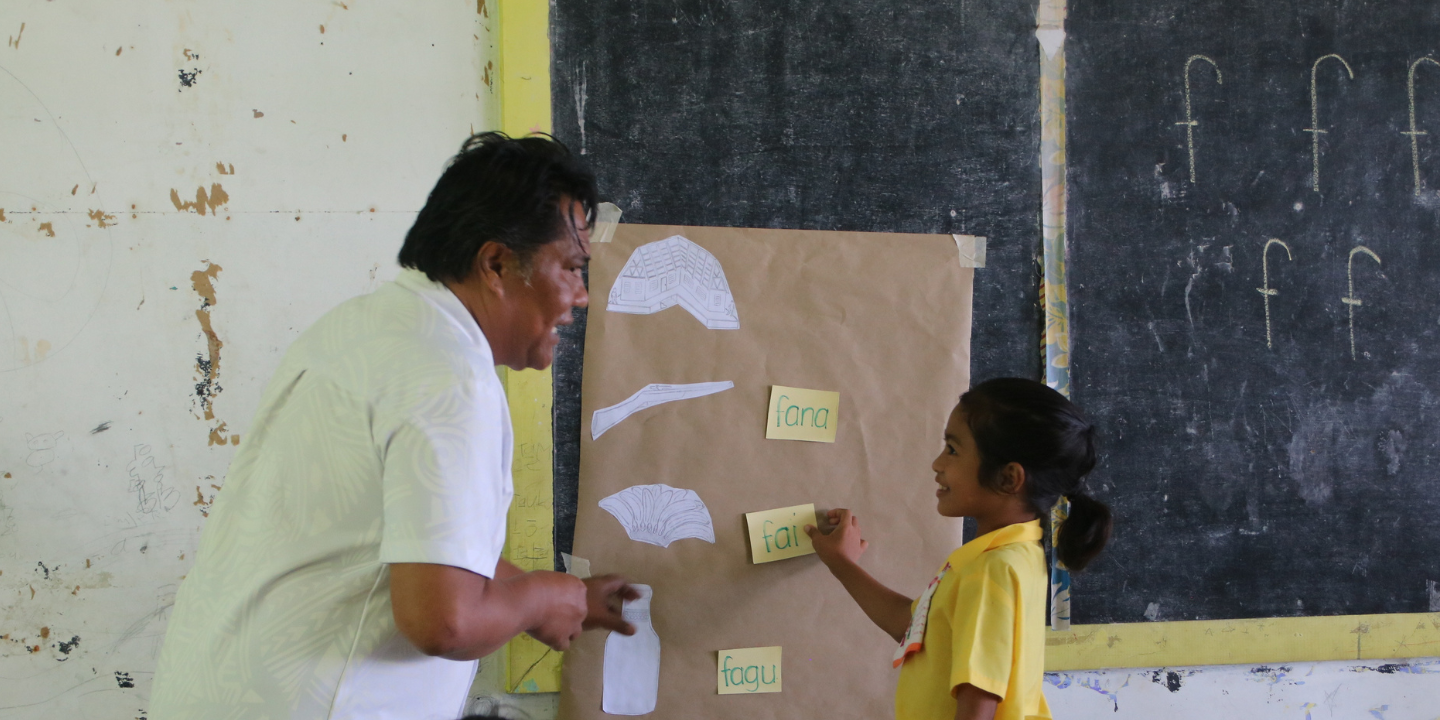
How is early childhood education affecting student learning outcomes in the Pacific?
Research 10 Jul 2023 6 minute readWatch our video to understand how equity and access to early childhood education contribute to learning outcomes at school.
Early childhood education (ECE) programs support children to have the best start in life. This is especially true for children from the most disadvantaged backgrounds.
According to the latest UNICEF data, children in high income countries are 4 times more likely to be enrolled in ECE than those in low-income countries. In the Pacific region, there are concerns that half the children born today will not reach their full potential due to limited access to quality education.
In order to understand the factors contributing to children’s learning at school, ACER and the Educational Quality and Assessment Programme (EQAP) of the Pacific Community (SPC) have been working together on a study to determine the connection between early childhood education programs and school-age learning outcomes in the Pacific.
Firstly, by using large-scale international and regional student assessments (including the Trends in International Mathematics and Science Study (TIMSS), Programme for International Student Assessment (PISA) and the Southeast Asia Primary Learning Metrics (SEA-PLM), the study confirmed that children who attended ECE performed better in reading, writing and mathematics than those who did not.
The Pacific Islands Literacy and Numeracy Assessment (PILNA) was then used to identify how ECE has contributed to the learning outcomes of Grade 4 and Grade 6 students in the Pacific. There were variable findings across the 15 PILNA countries. Further analysis was conducted in 3 countries to understand the varied results in the relationship between ECE and student achievement.
In one country, there was a positive relationship between ECE and student learning outcomes. Essentially, the more years a child participated in ECE, the higher their learning outcomes at school. In the second country, there was no clear relationship between ECE participation and student learning outcomes. While in the third country, ECE participation had a negative association with student learning outcomes, meaning children who participated in ECE had lower learning scores than those who did not.
A new and important finding showed that the positive impact of ECE on learning was reduced when taking student background and context into account. The study found that a complex mixture of factors impact school readiness and learning outcomes, such as where children live, what language is spoken at home, and family socio-economic status. In particular, parental education and a stimulating home learning environment are important contributing factors.
These same factors that contribute to learning outcomes also affect the likelihood of accessing ECE programs. Children from wealthier backgrounds are more likely to use ECE programs and have positive learning outcomes. This pattern is reversed for children from disadvantaged backgrounds, which is likely to exacerbate learning gaps.
Identifying what is needed to ensure equal access to – and quality of – ECE programs is critical to improving children’s learning outcomes at school. While countries in the Pacific are making progress towards implementing policies that align with effective ECE systems (such as universal access and raising teacher qualifications), there is limited evidence of ECE quality or ongoing monitoring and quality improvement.
The findings and recommendations from the study were presented at the Conference of Pacific Education Ministers (CPEM) and will inform the implementation of the Pacific Regional Education Framework (PacREF). These recommendations will also support the monitoring of progress towards achieving United Nations Sustainable Development Goal (SDG) target 4.2: equal access to quality pre-primary education.
Watch the video for more on the study findings and recommendations.
Further reading
Learn more about ACER’s education and development work.
Read our article about improving the quality of education in the Pacific through PILNA.
Learn more about PILNA.